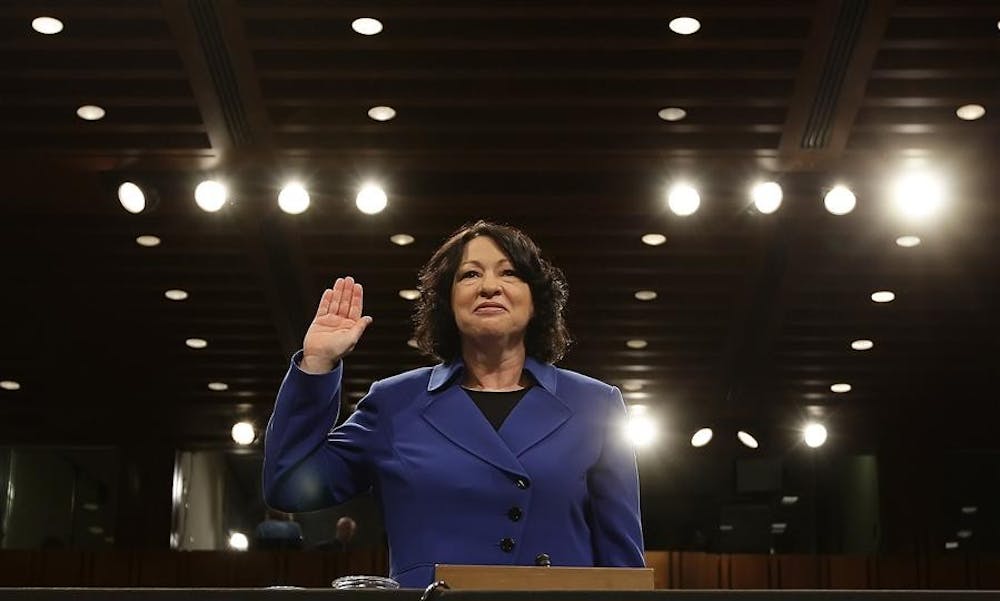WASHINGTON – The Senate confirmed Sonia Sotomayor Thursday as the first Hispanic justice on the Supreme Court.
The vote was 68-31 for Sotomayor, President Barack Obama’s first high court nominee. She becomes the 111th justice and just the third woman to serve.
Democrats praised the 55-year-old Sotomayor as a mainstream moderate. But most Republicans voted against her, saying she’d bring personal bias and a liberal agenda to the bench.
Senators took the rare step of assembling at their desks on the Senate floor for the historic occasion, rising from their seats to cast their votes.
She replaces retiring Justice David Souter, a liberal named by a Republican president, and she is not expected to alter the court’s ideological split.
Still, Republicans and Democrats were deeply at odds over confirming Sotomayor, and the battle over her nomination highlighted profound philosophical disagreements that will shape future battles over the court’s makeup as Obama looks to another likely vacancy — perhaps more than one— while he’s in the White House.
The GOP decried Obama’s call for “empathy” in a justice, painting Sotomayor as the embodiment of an inappropriate standard that would let a judge bring her personal whims and prejudices to the bench.
Her writings and speeches “reflect a belief not just that impartiality is not possible, but that it’s not even worth the effort,” said Sen. Mitch McConnell, R-Ky., the minority leader. “In Judge Sotomayor’s court, groups that didn’t make the cut of preferred groups often found that they ended up on the short end of the empathy standard.”
Democrats, for their part, hailed the vote as a breakthrough achievement for the country, on par with enactment of civil rights laws. They warned Republicans they risked a backlash from Hispanic voters in the short term and an enduring black mark on their party in history books by opposing Sotomayor’s confirmation.
“History awaits, and so does an anxious Hispanic community in this country,” said Sen. Robert Menendez of New Jersey, the Senate’s lone Hispanic Democrat and the head of his party’s campaign arm, just minutes before the vote. “When she places her hand on the Bible and takes the oath of office, the new portrait of the justices of the Supreme Court will clearly reflect who we are as a nation, what we stand for as a fair, just and hopeful people.”
The Senate chamber was heavy with history as senators cast their votes in turn.
Sen. Robert Byrd, D-W.Va., 91, the longest-serving senator who has been in frail health following a long hospitalization, was brought in in a wheelchair to vote. Sen. Edward Kennedy, D-Mass., suffering from brain cancer, was absent.
In the final tally, nine Republicans joined majority Democrats and the Senate’s two independents to support Sotomayor’s confirmation.
The Republicans said that they might disagree with some of her rulings, statements or views, but that she was well-qualified to serve on the nation’s highest court.
“Judge Sotomayor’s decisions, while not always the decision I would render, are not outside the legal mainstream and do not indicate an obvious desire to legislate from the bench,” said GOP Sen. George Voinovich of Ohio.
Like Democrats, many of them called Sotomayor’s background inspirational. The daughter of Puerto Rican parents, she was raised in a South Bronx housing project, then educated in the Ivy League before rising to the highest legal echelons.
Senate confirms Sotomayor for Supreme Court

Get stories like this in your inbox
Subscribe


